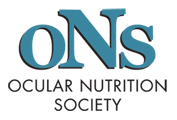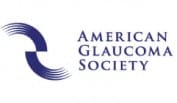Eye Care
EYE ALLERGIES
Allergic eye disease, or allergic conjunctivitis, makes the eyes feel itchy, red, watery and light-sensitive and can cause swelling of the eyelids. The months of late February, March, April and into May in New England can be miserable for our contact lens and non contact lens patients. The allergy may be seasonal, often occurring alongside hay fever, or it may occur throughout the year, known as perennial, as a result of exposure to allergens such as dust mites, mold or animal dander. Both are very common conditions, especially for patients with family histories of asthma, eczema or rhinitis. Less frequently, people can develop allergic eye disease from wearing hard or soft contact lenses, as a complication of atopic eczema, or for other reasons. Patients with this condition may also suffer from dry eyes and blepharitis.
Allergic eye disease is uncomfortable but it rarely causes injury. Treatment varies depending on the cause, history and symptoms, and may include topical or oral antihistamines, mast cell stabilizers or topical corticosteroids. Cold compresses may also relieve discomfort. Dr. Magalhaes and Associates may recommend OTC treatment of eye allergy and will work with your ENT specialist or allergist to mitigate your symptoms. Remember to consider Daily replacement contact lenses as the best type of lenses during peak season.

KIDS & VISION
According to the AOA Foundation’s InfantSEE® program, parents should schedule an eye exam for their children at six to twelve months old to ensure healthy development of vision and detect any problems as early as possible. A second exam is recommended around age two or three years, and then again before starting school. Comprehensive eye exams are essential in the diagnosis and treatment of vision problems, injury and disease. Early detection allows for treatment to begin before the child experiences difficulty in school due to poor vision, or before any permanent damage has been done to the eye(s). Children’s eye exams test visual acuity, eye tracking, and focusing skills, and detect problems such as nearsightedness, farsightedness, amblyopia, crossed eyes, dyslexia, and color blindness, and should be performed every two years for healthy eyes.
We provide specialized pediatric eye care services that focus on ensuring that your child maintains clear, strong vision as they grow. Our doctors are highly trained and experienced in the special needs of pediatric eye conditions and offer patients the skill and reliability to effectively treat these conditions.
What People Say About Us!
“I have been complacent with my eye care over the last few years, leaving me with very little memory of the process. It’s excellent that you can schedule an appointment online same day as the exam, literally within hours of the visit. Dr. McMahon gave me synopsis of every process of the exam which took little time. Shortly after the exam was completed the prescription was clearly explained to me along with eye care advice. Thank you to all the staff. “I” was also glad to see that optical instrumentation capable of capturing the detail at such high resolution. It’s very matter of fact.”
Click here to read more reviews.
PREVENTION & NUTRITION
Just like the rest of your body, good nutrition is essential in maintaining strong, healthy eyes and clear vision, especially as you age. Research has shown that proper nutrition can reduce a patient’s risk of age-related eye diseases and can also aid in treatment. The most important nutrients for eye health are carotenoids, which contain vitamins A, C and E and are typically found in fruits and vegetables, especially in dark green, leafy vegetables. Other important nutrients include zinc, copper and certain antioxidants that are not produced by the body and therefore must be attained through a healthy diet.
There are many vitamin supplements available to ensure that your eyes are properly nourished, with several options that are targeted specifically for eye health. We offer a wide range of ZeaVision® EyePromise® supplements in our office, which contain natural and unique Zeaxanthin formulas to protect your eyes and reduce the risk of diseases such as macula degeneration. Your doctor will advise you as to which supplements are appropriate for you.
Macula degeneration, Dry Eye Disease, Diabetic eye disease are a few of the many conditions addressed by ocular nutrition.

MATURE VISION
As we age, our vision begins to change and our eyes may become more susceptible to certain conditions. After the age of 40, you may begin to experience difficulty seeing up close, a condition known as presbyopia. Presbyopia involves a loss of flexibility within the crystalline lens that may require a need for reading glasses.
In addition to presbyopia, older patients are also at a higher risk of developing conditions such as glaucoma, flashes and floaters, retinal disorders and more. Many of these conditions cause progressive vision loss that is often irreversible. The best prevention against these conditions is to schedule regular eye exams with your doctor in order to detect any changes in your eyes as soon as possible. Early treatment is usually most effective in reducing the risk of vision loss and other serious complications.

TV & VISION
Despite common misconceptions, watching television is not necessarily harmful to your eyes, provided that you follow a few simple guidelines when doing so. In general, television viewing tends to cause less strain on the eyes than close work such as sewing or reading. Ideal viewing conditions involve a well-lit room with no glare or reflections visible on the screen. Watching television in a dark room creates an excessive contrast between the screen and the surrounding area, which can strain vision.
It is important to keep children from sitting too close to the screen, as ideal viewing distance is five times the width of the screen, from which images will appear sharpest and most defined. If you experience watery eyes or any other symptoms while watching television, notify your doctor, as you may need special glasses to protect your eyes.
COMPUTERS & VISION
While television viewing is not necessarily harmful to the eyes, excessive computer work can cause eyestrain for both children and adults, which can lead to headaches, blurred vision or other symptoms related to vision stress. To learn more about eyestrain and to take a Computer Vision Assessment, visit Home Therapy Systems.
Schedule an Allergic Eye Exam
If you feel that you are having an allergic eye reaction and you are looking for treatment, please call our office at 508-717-0425 to schedule an appointment or fill out a contact form and we will reply back as quickly as possible. We looking forward to meeting with you!


